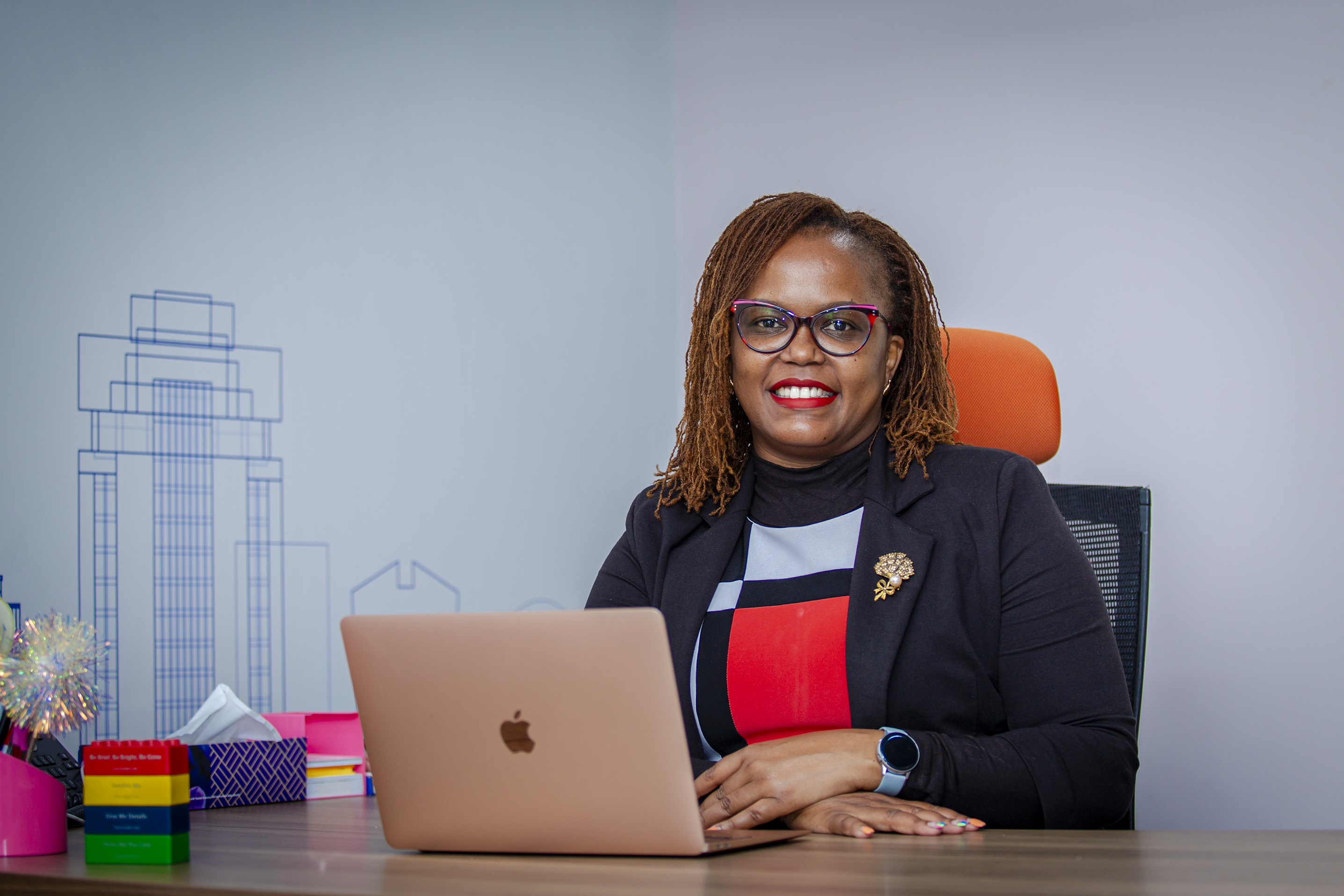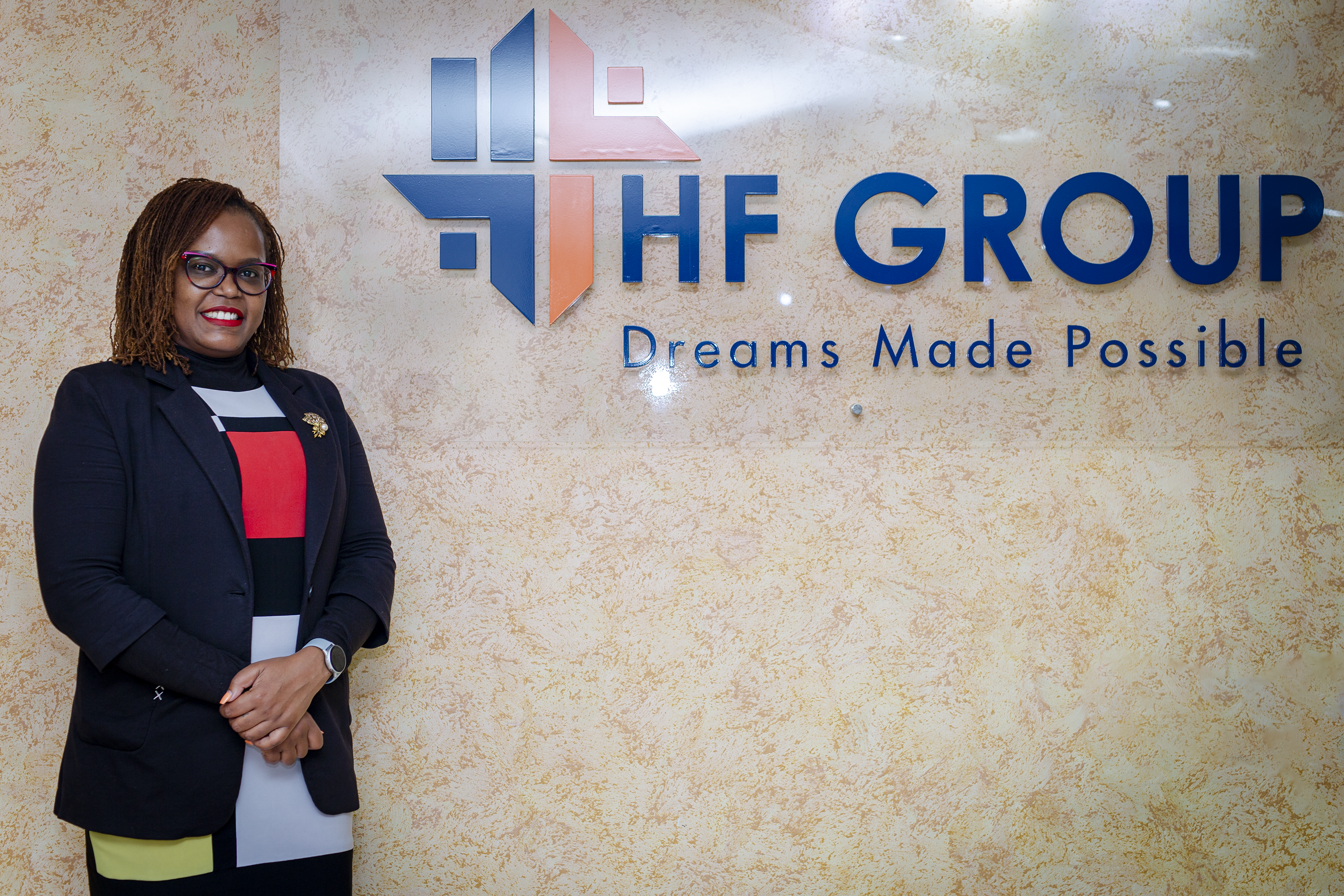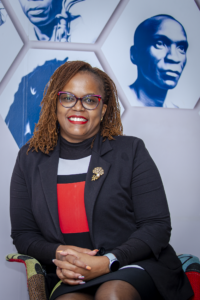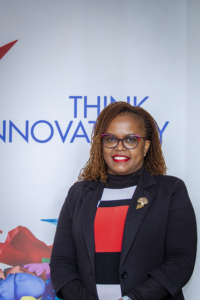advertisement
How Ambivert Anita Drives Innovation With A Human Touch

Anita’s journey weaves a rich tapestry of both personal and professional threads. As a devoted mother of two and a proud pet owner to her fur baby, she juggles the demands of family life with her ambitious career. An ambivert, she occupies the best of the extroverted externalities and the beautiful solitude of the introvert. It equips her with a unique ability to navigate the complexities of interpersonal relationships with grace and understanding. Her leadership is generously splashed with self-awareness. Round it up with her innovative spirit and you have a woman who can flourish across diverse roles.
At HF Group, innovation is not merely a trendy term. Not for Anita. Here, it represents a foundational aspect of the company’s ethos where it permeates every process, product, and strategy. From the HF Ideas Hub to the inclusive approach of stakeholder engagement in decision-making, Anita’s methodology is at once comprehensive and collaborative. Exactly like this conversation.
Now, I hate this interview question, but weirdly enough, it seems to work. Who is Anita Chege?
advertisement
This question reminds me of Trevor Noah’s Netflix Special when he talks about the French and how they answer that question.
How they talk about who they are, not what they do. I love it and want to incorporate that in all my introductions going forward!
Most of us are unable to as you are going to see. Anita is a mother … See? I told you!
advertisement
That’s promising. Keep going!
I am a mother of two with both birthdays in June. My daughter is turning 16. My son is turning 10. I’m also a mother to a fur baby called Chelsea. Chelsea is seven so 49 in dog years. I’m an ambivert personality wise, depending on my level of relationship with you or the situation I find myself in. My personality shows differently. Other people don’t understand how I can be an introvert because my few friends see the extroverted side. I’m the eldest in a family of three and I’m the only girl.
Have you ever done a test to show that you’re an ambivert?
advertisement
Yes, I have, through an executive work course by Insights. They said there are different levels to how you relate or how people should relate with you. For the longest time, I always thought of myself as being very empathetic. But I think over time, I’ve realised I’m not as empathetic as I thought I was. That self-awareness helps me engage better because I know my strengths, so I really try especially working hard with people to show that empathetic side of me. One of the things I struggled with, because I was in consulting for 10 years after my Wananchi Online job. We used to implement banking systems all over Africa. I would travel a lot and would have to manage big projects by myself. If I had a big bank in Zambia as a project, I’d own the entire project, and that is how I’d be assessed. All the company cared about was if you went live. There was never any annual performance review sessions with your manager. When I came into the corporate world it was very hard to adjust to working with different people to get work done. It was initially frustrating, but over time you realise you can’t work by yourself. teamwork aspect is very key in anything. Not just in banking. I had to understand this. That’s how I’m able then to bring all the stakeholders to the table which is the biggest hurdle when implementing anything. I hope I’ve described myself well.
You’ve described yourself beautifully. And I would guess that you and your stakeholders need to be on the same page with you as the Head of Innovation.
You have to include them in the entire process from start to finish. Innovation is at the center of everything within the organisation. Here’s how we see it in HF; innovation is creating incremental value for both external and internal customers. This happens in three areas we innovate around – processes, products, and cost of optimisation. We really focus on what are those customer painpoints and where the internal customer and the external customer converge. With the external customer (the bank customers), and the internal customers (the staff), the point of convergence is processes. Let’s say you were to apply for a loan. We can enable you to apply for it digitally over the phone. But in terms of getting that loan disbursed into your account, there are processes to follow. Whenever we innovate, we must then think about all those people in that whole loop of that one process. This convenience enables efficiency and cost savings. Banks are very keen on the cost to income ratio. It’s one of the big ratios that has a huge impact on your profitability. Because I sit in the middle, I must be aware of multiple factors. HF Group has four subsidiaries. We have the bank (HFC); the property subsidiary (HFDI); bank assurance (HFBI) and a foundation (HFF). Innovation sits at the centre of all that. I must ensure that I’m listening to all the different stakeholders both internally and externally. That’s a lot of listening. And that’s why now data becomes very important for the innovation process. It’s where data plays a vital role.

So how do you create a culture of innovation inside all of these four elements aka subsidiaries that you have to, you know, stake hold?
One of the things I did first when I joined in 2023 was sensitise the organisation about what innovation is and really demystify that. Where you’re able to show that if I’m looking at a process, first, you have to have the customer in mind. As you serve that customer, whether you’re a direct sales agent, you know, in the street selling one of our products, you have to listen to a customer. I train all the stakeholders to understand how to listen, and listening is not rocket science. If a customer says, this form, why do I need to fill this or to give you this document? We then created a crowdsourcing digital platform, which we review often. We’ve been running a campaign across all the branches to teach innovation with some rallying calls. It’s about curiosity and about customer value; helping everyone understand that at the branch level. Once they can understand that, whenever they see an opportunity, they put that on the platform. We call it the HF Ideas Hub. My team and I pick ideas here for feasibility testing then present it to the Innovation Council. Once approved, we get that going in terms of now bringing the idea to life.
Who is in the Innovation Council?
The Innovation Council is chaired by our Group CEO, Robert Kibaara and Managing Director (HFC) Peter Mugeni. It also consists of some additional members who we sit in the Management Executive Committee (ExCO). It’s a subcommittee of the Executive Committee (ExCo).
What do you usually tell people innovation is?
Innovation is creating value for a customer where the creation of that value is you solving for two things, a problem they have or a motivation. For most of us, both on the technical side and with basic banking, we always look at customer issues. But you also have to listen to your customer to know what motivates them. If it’s a business, as much as they might have a credit/cash flow issue that you need to fund through a loan, it’s also important to listen for their business’s aspirations. They may need something more than just credit, for example. Right there exists an opportunity to invest. For me, innovation is not about bells and whistles, or ‘big shiny objects’ as my boss calls them. It’s about that value that you create for that one customer right then. And once you create value in those two areas for a customer, then you’re able to retain them and you derive much more business value for your organisation.
It is said in some quarters, largely post-COVID, that digital transformation primarily happened for the benefit of the customer and to enhance the customer experience. Have you found that to be true?
Very, very true. COVID is one of those events in our lifetime we’ll never experience again. At least I hope not. Maybe our children could. Remember how we couldn’t leave the house, yet we still must live and eat. This brought digital transformation to the forefront. As a bank, we had to really look at our channels, and how to make them better and accessible for our customers. Even as we innovate now, the convenience we created for our customers through digital channels means we still have a fast way we must deliver.
Tell me about your team. How did you put it together?
I have a team of six. Remember how I defined the process of innovation? It was important for me to have a data analyst. Someone who could establish a problem using data and collaborate with a software engineer to technically translate that. The other person was a product manager. They could validate the data to translate that into customer journeys, which are then translated by the software engineer. A digital analyst/engagement officer who would understand hyperpersonalisation.
What are some of the initiatives you have worked on that you can share?
We started off with fixing our core offerings/products for our customers. We were loss making but the past two years we have turned that around. In 2017, we launched our digital platform. We learnt a lot. We paid school fees if I may say so. It died. Once I set up the team, one of my KPIs was to double the activity and really understand our customers especially from a digital perspective. This involved also looking inwardly at all processes/ systems that support these customer propositions.

Is this where your vision lies? What would you say is your vision for HF?
Wow. Let me speak about the collective vision that I ascribed to. I want HF to be one of the top 10 banks in 10 years. No. Sorry, by 2026.
That’s not far. It’s already here!
No, it’s not far. That’s just two years. We heavily researched a lot of the players in Kenya, and we were able to map out that top 10 and the Tier One banks, and we said this is what we need to do to get on that list. That is what we are all working towards. What sets us apart from other banks is the fact that a lot of the Millennials who grew up in Nairobi grew up in estates that HF built. Whenever you talk to somebody and tell them you’re from HF, there’s that sentimental value. Many people don’t know we’re a full-service bank and still attribute us to mortgages. We believe that all the efforts we’re making to change that narrative will propel us to that visit because of our heritage.
What are the leadership lessons you’ve learned in the last 10-15 years of your career?
One of the lessons I can speak to is the importance of trusting the process of professional growth. I believe many in the current generation perceive success as something easily attainable, often overlooking the years of hard work behind it. It’s crucial to take your work seriously no matter where you are in your journey. In the 10 years of consulting, some of the skills I built were because there was no one to supervise me. I had to be diligent. It takes a bit more time than many would like, but that definitely pays off and pays forward. Also, when you pick your team, pick wisely. You know the mistakes you make when you you’re picking your team? Fix them as fast as you can even if it means letting go of a team member. Just do it. You’re doing yourself and them a favour if they are not a good fit because you’re as good as your team. You can’t do everything. And continuously building yourself depending on your career path. I recommend taking short courses. You don’t have to do a master’s. I did my Masters in 2011, which I feel was a waste. It was too soon in my career. I wish I had done my master’s now. I’m actually going to do my Executive MBA soon, and this time I will be at a level where I can apply those lessons.
What would you say has been your biggest challenges in terms of digital and cultural transformation?
Delivering through people. Looking at my previous role, the organisational structure and design made it difficult to act because you were not autonomous. They were based in a very different market with a very different approach, so there was a clash of cultures. Team dynamics are constantly evolving. Members come and go, requiring ongoing adjustments. However, with time, these changes often lead to improved team cohesion and performance.
You were running a cross-functional team before you came here when you would own the project. Do you find that you’re managing the team the same way then, almost like it’s an agile project?
My experience over the years has set me up for this role. The combination of skills I have, and experience are a very rare combination. I was a software developer. I used to install cables when I started my career. I’ve done real networking and have the certifications. I can code, although I didn’t like coding much. I did project management, product management, digital commercialisation, I’ve led a marketing department at Letshego. In fact, one of the projects that really stood out for me there is when we were moving offices from Yaya Centre to Upper Hill. I had to see through the whole rebranding of that space. I look at that office when I pass by there and think – wow! That was my project. Then getting to do a campaign with Sauti Sol. That was something that would never happen anywhere else. All these built me for this role. I’m extremely passionate about what I do.
Is there any reason HF became more customer-focused? Anything prompt this?
It’s the environment. Customers now have many options. I’m sure you have several bank accounts. The competition is quite intense. But a lot of banks, and I may say so, have not really cracked personalization. We have the opportunity because we are small and nimble. Other banks may take forever to make a decision. Not us. We can deliver faster than our competitors.
I would imagine part of that requires that you convince or persuade the stakeholders. That seems to me to be a critical skill.
That it is. One of the things that does not change even in the corporate world is, a person is a person. We are people first even at that level and without titles. One of the things I’ve learned over the years is to manage both aspects of people. The human angle is a relationship you build over time, but at the end of the day, there has to be a corresponding value you need to articulate. Some require you to place a business value that X will lead to Y.
Are you a good relationship builder? I’m not sure I am.
I think I am. Over the years, I’ve seen people gravitate towards me in every sense of that word. I call myself a therapist because there is a level of trust that is a benefit for me in my role. I am able to articulate things that will be taken positively in my role.
How do you innovate around, through and with regulations? You must bump across challenges especially with fresh or new ideas.
As a team, first we understand our guidelines. Interestingly, our key regulator, the Central Bank of Kenya, have regulations that really focus on customer. First comes awareness of the regulation and then this is followed by constant conversations with our compliance team because they are like our bridge to our key regulator. We involve them from the onset, right from idea gathering. They point out things we need to consider before we build so it’s easier to deal with them from the onset rather than when you’re about to deploy. We include regulators from the beginning. We had to learn the hard way. It’s wise to involve them from the beginning. That way when we’re ready to go to market, they’re able to point out all these things earlier.
And what would you say have been some of your biggest challenges with CBK?
I would say it’s the same industry-wide challenge, cloud adoption. Before I left HF, we had rallied as CIOs to address this issue, because it hampered scalability especially around data sovereignty. Even when we could show that we had complied with the data protection regulations and laws.
You head innovation, and you have to learn how to balance innovation with risk/compliance. How do you achieve this feat?
I don’t think it’s a balance. It’s more of a convergence, which can only happen when there’s an involvement of risk. You have to be able to carry along your risk and compliance team be it during ideation or training, so they can add value.
Now for the ultimate question. Why did you leave HF and why did you come back?
I see you. I see what you’ve done there.
That’s the last one. Like I’m about to leave now. I’m about to leave now. Let me slide it in. It’s almost the last one. Yeah.
I’d been in HF since 2016. So, I left with 2021. It was just to see a different space. Be in a different environment. The new role had marketing angle to it, which I wanted to be a part of or at least experience that. Then they called me back for the creation of this new division. It was a good challenge for me to come back.

What next for you? What are you thinking of doing in the next five years. Confession – I hate this question because I personally don’t know the answer and I try to never ask it. Yet, people can surprise you. What would be more inspiring for you as a next step?
I think the next three years for me will just be building this company. I share the HF vision and I want to be part of that achievement.
That’s a good answer. Finally, what do you do for fun?
I watch a lot of movies.
What’s the last movie you watched?
Laws of Attraction. It’s an old one by Jodie Foster. Then I watched Kungfu Panda on Friday with my kids. I also enjoy a good hike.
How many kilometers was your last hike?
Who did you go with?
My kids and our dog.
I hope you took pictures!
Yes. That moment deserves pictures on social media. So, you can make people realise they’ve been sitting doing nothing.